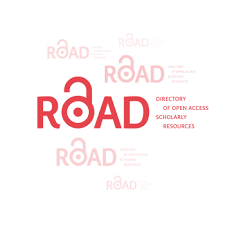PENGEMBANGAN E-LKPD BERBASIS SCIENCE, TECHNOLOGY, ENGINEERING AND MATHEMATICS (STEM) TERHADAP KETERAMPILAN PROSES SAINS SISWA PADA MATERI PERUBAHAN LINGKUNGAN KELAS X SMAN 1 TOHO
DOI:
https://doi.org/10.31571/jpsa.v8i1.8975Keywords:
E-LKPD, science, Science Process Skills.Abstract
This study aims to develop Science, Technology, Engineering And Mathematics-based E-LKPD on science process skills that are 1) valid 2) practical 3) effective. This research model uses the ADDIE development model by Tegeh et al (Analysis–Design-Development-Implementation-Evaluation). Data collection techniques: indirect communication, measurement and observation. The data collection tool uses expert validation sheets, questionnaires and tests. Research subject: grade 10 of SMA Negeri 1 Toho. Validity and practicality data analysis techniques using quantitative descriptive, effectiveness using data from pretest and posttest scores carried out by students The effectiveness criteria of E-LKPD are determined by the average value of the N-Gain score. The results of the study: 1) very valid with an average percentage of 85.72% 2) very practical with a student response percentage of 90.95% 3) effective average N-Gain of 0.71 Conclusion: E-LKPD based on Science, Technology, Engineering and Mathematics is classified as valid, practical and effective to be used in the learning process for students' science process skills.
Downloads
References
Hodiyanto., Darma, Y., & Putra, S. R. S. (2020). Pengembangan Media Pembelajaran Berbasis Macromedia Flash Bermuatan Problem Posing terhadap Kemampuan Pemecahan Masalah Matematis. Jurnal Pendidikan Matematika, 9(2), 323-334
Jumyati, J., Nur’ariyani, S., Hidayat, S., & Dewi, R.S., (2022). Landasan Yuridis Pendidikan. Jurnal Pendidikan Dan Konseling (JPDK), 4(6), 8296–8301.
Mardhiyah, H. R., Aldriani, F. N., Chitta, F., Zulfikar, R. (2021). Pentingnya Keterampilan Belajar di Abad 21 sebagai Tuntutan dalam Pengembangan Sumber Daya Manusia. Jurnal Pendidikan, 12(1), 29-4.
Mulyani Tri. (2019). Pendekatan Pembelajaran STEM untuk menghadapi Revolusi Industry 4.0. Seminar Nasional Pascasarjana, Jawa Tengah 2019. Hal 453-460.
Sumaya, A., Ila, I., Nur, I. (2021). Penerapan Pendekatan STEM untuk Meningkatkan Hasil Belajar Siswa Sekolah Dasar Di Kabupaten Pinrang. Jurnal Bio Educatio, 1(2), 217-223.
Tegeh, I. M., Jampel, I.N., Pudjawan, K., (2014). Model Penelitian Pengembangan. Yogyakarta : Graha Ilmu.
Tipani, A., Toto, & Lia, Y. (2019). Implementasi Model PJBL Berbasis STEM Untuk Meningkatkan Penguasaan Konsep Dan Kemampuan Berpikir Analitis Siswa. Jurnal Bio Educatio, 4(2), 70-76.
Downloads
Published
How to Cite
Issue
Section
License
Copyright (c) 2025 Siska

This work is licensed under a Creative Commons Attribution-NonCommercial 4.0 International License.
Authors who publish with this journal agree to the following terms:
Authors retain copyright and grant the journal right of first publication with the work simultaneously licensed under a Creative Commons Attribution License that allows others to share the work with an acknowledgment of the work's authorship and initial publication in this journal.
Authors are able to enter into separate, additional contractual arrangements for the non-exclusive distribution of the journal's published version of the work (e.g., post it to an institutional repository or publish it in a book), with an acknowledgment of its initial publication in this journal.
Authors are permitted and encouraged to post their work online (e.g., in institutional repositories or on their website) prior to and during the submission process, as it can lead to productive exchanges, as well as earlier and greater citation of published work.
-
Abstract0
-
pdf0

 Download: 0
Download: 0






